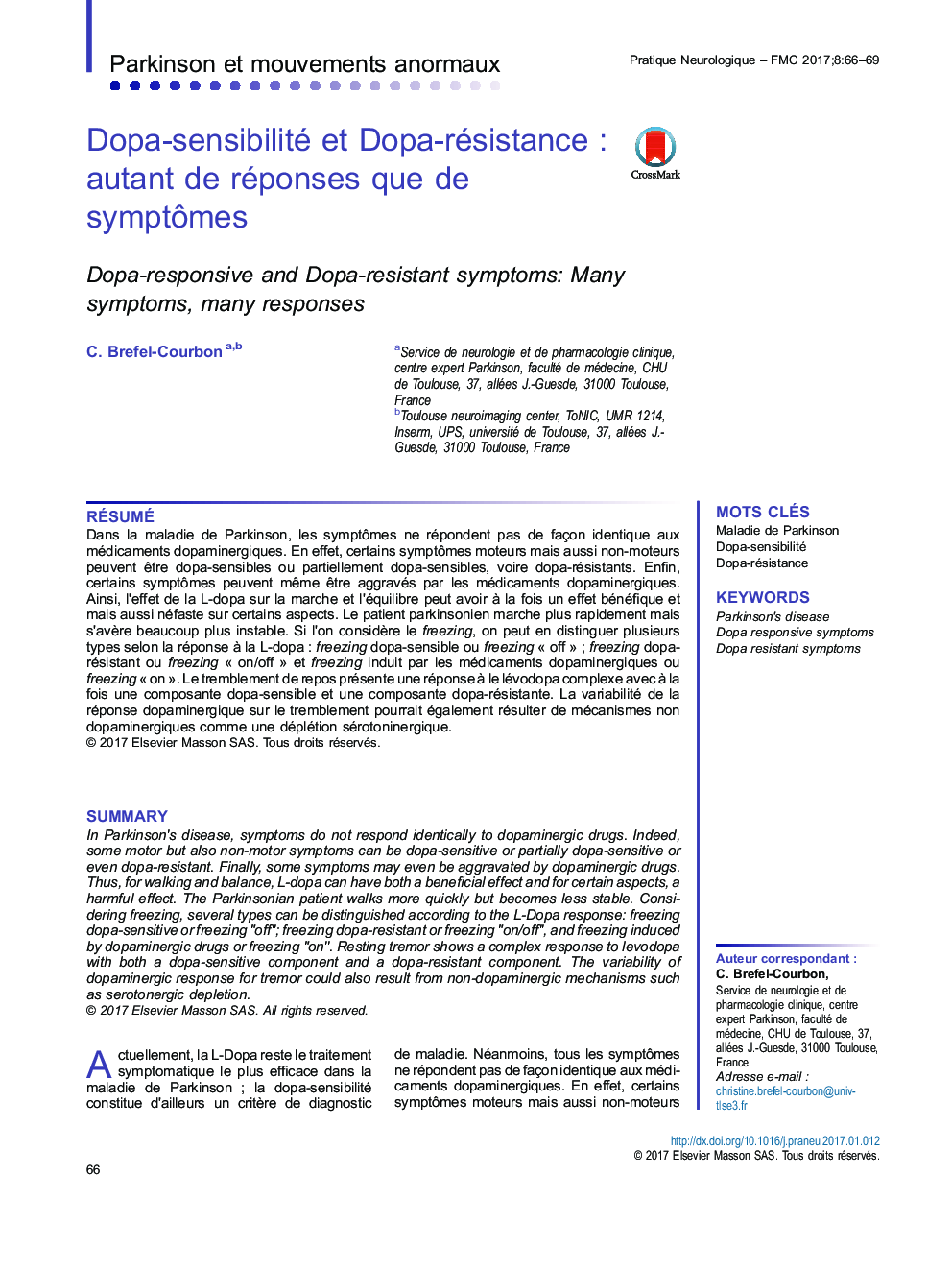| Article ID | Journal | Published Year | Pages | File Type |
|---|---|---|---|---|
| 5633150 | Pratique Neurologique - FMC | 2017 | 4 Pages |
Abstract
In Parkinson's disease, symptoms do not respond identically to dopaminergic drugs. Indeed, some motor but also non-motor symptoms can be dopa-sensitive or partially dopa-sensitive or even dopa-resistant. Finally, some symptoms may even be aggravated by dopaminergic drugs. Thus, for walking and balance, L-dopa can have both a beneficial effect and for certain aspects, a harmful effect. The Parkinsonian patient walks more quickly but becomes less stable. Considering freezing, several types can be distinguished according to the L-Dopa response: freezing dopa-sensitive or freezing “off”; freezing dopa-resistant or freezing “on/off”, and freezing induced by dopaminergic drugs or freezing “on”. Resting tremor shows a complex response to levodopa with both a dopa-sensitive component and a dopa-resistant component. The variability of dopaminergic response for tremor could also result from non-dopaminergic mechanisms such as serotonergic depletion.
Related Topics
Life Sciences
Neuroscience
Neurology
Authors
C. Brefel-Courbon,
